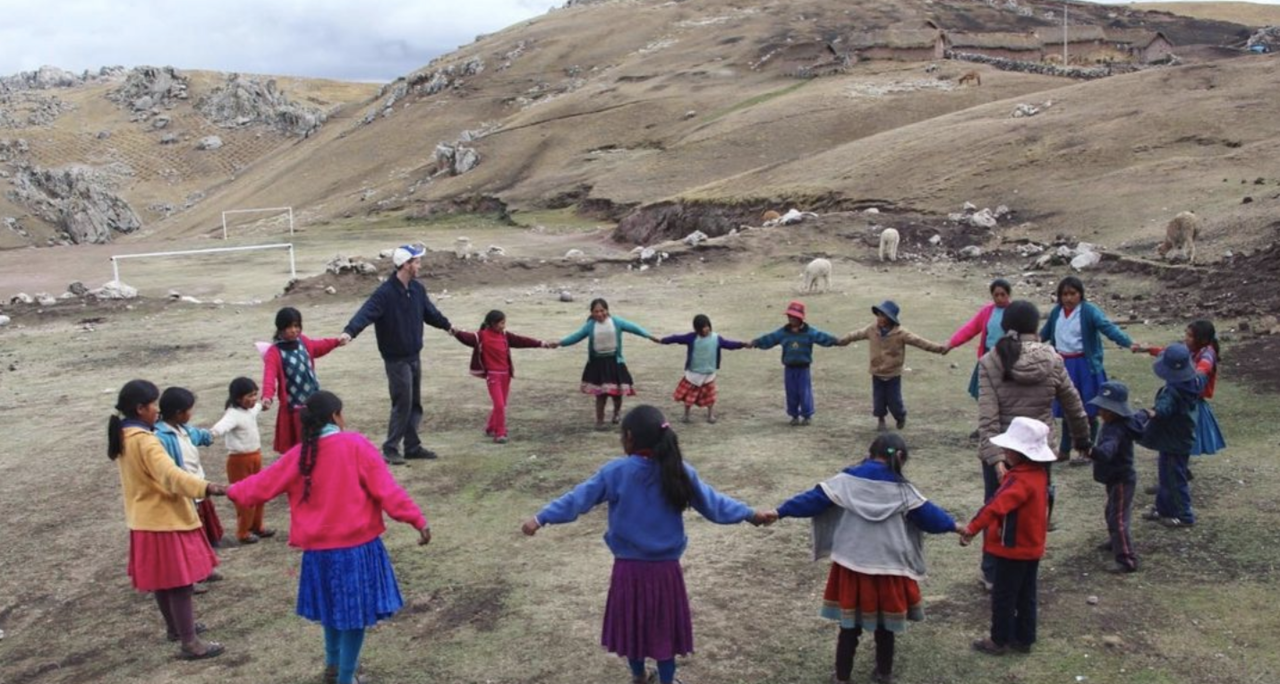*Article originally published on LinkedIn here
Rural teacher training in Peru and Bolivia is a gigantic task. While I was living there a few years ago, I remember driving for 6 hours to reach the isolated schools where these teachers work. It’s not difficult to imagine how difficult and costly was organising teacher training sessions for hundreds of teachers.
The teachers of these areas normally spend Monday-Friday in the communities, and they go to the town or city where they have their homes at the weekend.
In these conditions, it might seem obvious to deliver training online. And this is what happened during the pandemic. However, connectivity is a major problem. On top of this, if the pedagogy of online learning is based on a Zoom-only approach, likely, success is not guaranteed.
During Covid, as I couldn’t travel home in Christmas 2020, I started to volunteer with Alma Children’s Education Foundation, a Canadian-based foundation working in Peru and Bolivia, to help them to organise their teaching materials in a digital format, easy to distribute among teachers.
The idea proposed was simple: a Moodle-based LMS in which the content was displayed in different subjects and levels, so they could access it in a more organised manner. Next month I was offered a freelance contract to provide ongoing support. After a couple of months, we had 2,000 teachers registered in the LMS.
This was not enough, and we didn’t want to offer just an e-library for teachers, but develop online courses with an innovative pedagogy that suit the context of these rural teachers.
That’s what we did, and what we are doing. We are developing and delivering courses using a mobile-first approach. Why mobile? Most of the teachers do not have laptops but smartphones. They don’t have connectivity in these communities and they can access the Internet only during the weekend.
What if we delivered low-bandwidth online courses hosted in an app that can be downloaded to their devices, so they can work on the activities while they are in their rural schools and submit them over the weekend?
We started to work on this idea at the end of 2021, and at the beginning of 2022, we got accreditation from a private university for a postgraduate diploma in innovative pedagogy for rural teachers.
The course covers the tools that teachers need to be empowered to plan, implement, and evaluate innovative pedagogy based on the local indigenous culture, critical and creative thinking, and social-emotional well-being in order to achieve the academic goals of Peru’s national curriculum.
We’ve just started last month, and 355 teachers, with the excellent support of 6 highly-committed facilitators, are participating in the course. The progress of the course is being fascinating so far.
I truly believe that technology is not the important element here, but a dance between pedagogy, technology and context which makes possible the expansion of training to hard-to-reach populations, while making a positive impact in these rural schools, and so on the education in the region.
Let’s keep dancing! 🕺🏽
